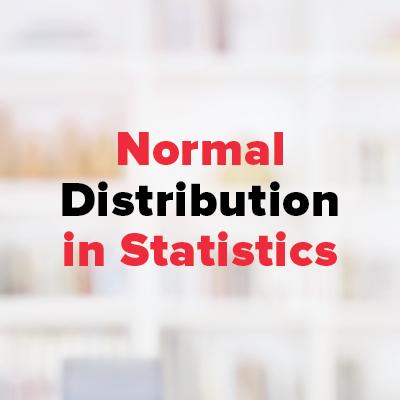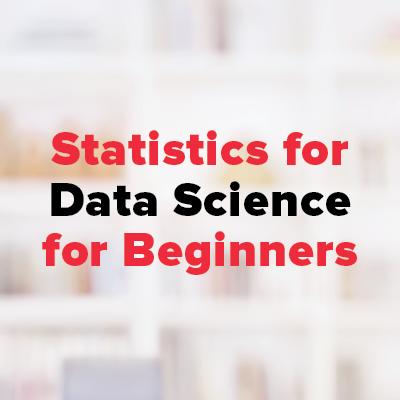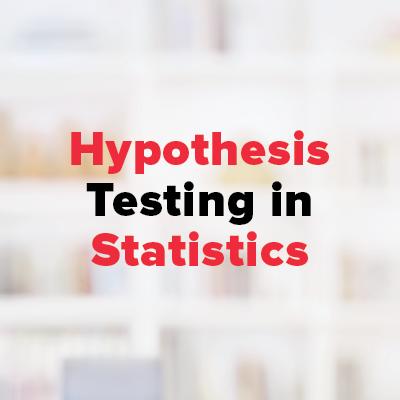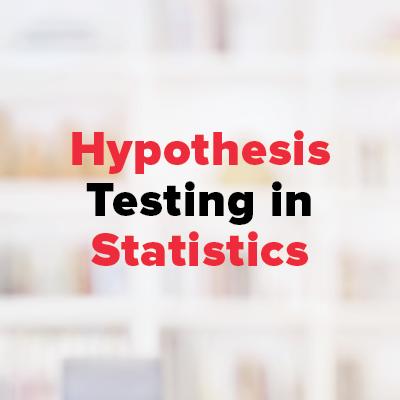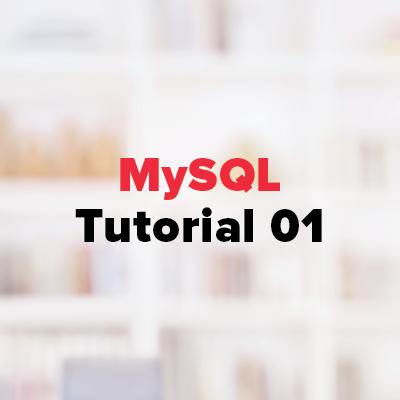All courses
Certifications
- Study abroad
- Offline centres
More
Data Science Courses
Data Science course helps you understand and use data in a meaningful way. This course teaches data handling, statistics, and machine learning so you can uncover insights and apply them to real-world problems.
Certificate in Data Science courses with GenAI integrated curriculum
Get to study with top-tier faculty at IIIT Bangalore and LJMU
Learn Python, Machine Learning, AI, Tableau, and SQL designed for industry needs
-80f5aca04e9b49ca9902fe2806c12f6e.webp&w=3840&q=75)
Career Support
57% Avg Salary Hike
Career Coaching
Our Top University Partners for Data Science Programs






Learn by Doing
16+
Industry projects to choose from
Learn From The Best Instructors
8
Instructors
10
Industry Experts
What Our Learners Have To Say
How can upGrad support you?
Access the various career developement support services offered by upGrad to help you achieve your dream career and professional goals
You can write to us via studentsupport@upgrad.com or for urgent queries use the " Talk to Us" option on the learning platform
We are always there to support our online data science course learners on demand.


Videos You Might Like To Watch
Data Science Course Overview
Essential Resources to Navigate Your Data Science Journey
Data Science FAQs
1. What is a Data Science course?
A Data Science course is a structured program that teaches you how to collect, analyse, and interpret data to solve real-world problems. It covers key skills like Python programming, statistics, machine learning, data visualisation, and working with large datasets. Most courses also include hands-on projects, case studies, and capstones so learners can apply concepts to real business scenarios.
In short, a Data Science course equips you with the tools and practical expertise needed to become a data analyst, data scientist, or machine learning professional in today’s data-driven industries.
2. What are the 4 types of data in data science?
In data science, data is commonly classified into four core types based on how it is measured and used in analysis:
- Nominal data: Categorical data with no inherent order (e.g., colours, gender, location).
- Ordinal data: Categorical data with a defined order or ranking (e.g., customer satisfaction ratings, education levels).
- Discrete data: Countable numerical values (e.g., number of users, number of transactions).
- Continuous data: Numerical values that can take an infinite range (e.g., height, weight, temperature).
Understanding these data types helps data scientists choose the right analytical techniques and statistical models.
3. What is the eligibility for a data science course?
Most data science courses are open to graduates from any academic background. You don’t need a specialised degree to apply. However, having prior exposure to mathematics, statistics, computer science, or engineering can make it easier to grasp technical concepts covered in the curriculum.
That said, basic mathematical knowledge (algebra, probability, statistics) and strong logical reasoning skills are essential to succeed. These fundamentals help you understand topics like data analysis, algorithms, programming, and statistical modelling.
Overall, eligibility criteria are flexible, but your ability to work with numbers, analyse problems, and learn technical tools will determine how well you can keep up with the pace of the program.
4. Can I do a data science course without coding knowledge?
Yes, you can do a data science course without prior coding knowledge. Many beginner-friendly programs start with foundational modules in Python or R, ensuring you learn coding from scratch.
However, you should be prepared to develop basic programming skills during the course, as coding is essential for tasks like data cleaning, analysis, and building machine learning models. With consistent practice, most learners with no coding background are able to pick it up comfortably.
5. Can non-technical graduates apply for a Data Science course?
Yes, non-technical graduates can absolutely apply for a Data Science course. Most data science programs are designed to be accessible to learners from diverse academic backgrounds, including commerce, arts, and humanities.
While a technical background can offer an initial advantage, it is not a mandatory requirement. What matters more is your comfort with basic mathematics, curiosity to work with data, and willingness to learn tools and concepts like Python, statistics, and machine learning.
With the right training and consistent practice, non-technical learners can transition into data science roles just as successfully as technical graduates.
6. Do I need mathematics to learn Data Science?
Yes, you do need mathematics for learning Data Science, but only at a foundational level. Key areas like algebra, probability, and basic statistics are essential because they form the base for concepts such as data analysis, machine learning, and model evaluation.
You don’t need advanced or university-level math, but you should be comfortable working with numbers, interpreting data, and understanding how algorithms make decisions. Most beginner-friendly courses also teach the required math from scratch, so you can build confidence as you progress.
7. How should you study data science?
A structured approach works best when learning data science:
- Start with programming fundamentals: Learn Python or R, the most widely used languages in data science.
- Understand core libraries and tools: Focus on Python libraries such as NumPy, Pandas, and Matplotlib, or R’s tidyverse for data manipulation and analysis.
- Build data handling skills: Practice cleaning, analysing, and visualising real-world datasets.
- Progress to advanced concepts: Gradually move into statistics, machine learning, and real-world projects.
8. Is an online Data course suitable for beginners?
Yes, an online Data Science course is highly suitable for beginners. Most programs are structured to start from the basics, covering foundational topics like programming, statistics, and data handling before moving to advanced concepts.
Online courses also offer flexibility, self-paced learning, recorded lectures, hands-on projects, and doubt-clearing support, making it easier for beginners to learn comfortably and consistently. As long as you have the willingness to practice regularly, online data science courses can be an excellent starting point for your career.
9. How do I choose the best data science course for my career goals?
To choose the best data science course for your career goals, start by identifying the skills and roles you want to pursue—whether it’s data analysis, machine learning, business analytics, or AI engineering. Different programs emphasise different pathways, so clarity on your goal will help you pick the right fit.
Next, look for courses that offer a clear curriculum, covering essentials like Python, statistics, data visualisation, SQL, and machine learning. Ensure the course provides hands-on projects, case studies, and industry-relevant tools, as practical experience is crucial for building a strong portfolio.
You should also evaluate the program’s duration, learning format (self-paced or live), mentor support, placement assistance, and credibility of the certificate or university partner. Finally, check student reviews and outcomes to understand whether the course genuinely helps learners transition into data roles.
10. What certifications should I consider in a data science or data analytics course?
Check for data science or data analytics course certifications from well-known institutions such as:
- Executive Diploma in Data Science and AI from IIIT Bangalore
- MS in Data Science from Liverpool John Moores University (LJMU)
- Generative AI Mastery Certificate for Data Analysis from Microsoft & upGrad
11. What are the best online data science courses in India in 2026?
In 2026, the most effective data science certificate and degree programs are:
- 1. Master’s in Data Science (upGrad + Liverpool John Moores University)
- Curriculum: Python, R, SQL, AI, Machine Learning, Big Data, Data Visualization
- Why Take It: Globally recognized degree + upGrad’s mentorship + real-world projects
- 2. Executive Post Graduate Certificate in Data Science & AI (upGrad + IIIT Bangalore)
- Designed for working professionals
- Covers industry-relevant tools + hands-on projects to kickstart your DS career
- 3. Post Graduate Diploma in Data Science (upGrad + IIIT Bangalore)
- Designed for working professionals with real case studies and projects
- Good for a deep, structured learning path without committing to a full master’s degree
- 4. Professional Certificate in Data Science & Generative AI
- Focus: Data science + AI + GenAI (very future-focused)
- Ideal for upskilling quickly and building a modern DS skillset
12. What online data science programs are suitable for working professionals?
Working professionals seeking to upskill in data science can consider the following programs:
- Executive Post Graduate Certificate in Data Science & AI (IIITB)
- Covers Python, SQL, Machine Learning, Deep Learning, Big Data, NLP, and more - very relevant tools for real-world data roles.
- Includes a programming fundamentals bootcamp if you're starting from scratch.
- Recognized certificate from IIIT Bangalore, plus Microsoft certification.
- Executive PG Programme in Data Science (IIITB)
- Comes with alumni status at IIITB + upGrad.
- Offers specialisations - you can choose Deep Learning, Business Intelligence / Data Analytics, or Data Engineering.
- Strong career support: 1:1 mentorship, mock interviews, resume building.
- Advanced Programme in Data Science (IIITB + upGrad)
- Designed for working professionals who want a practical, project-driven learning experience.
- Covers data toolkit (Python, SQL), statistics, EDA, machine learning, analytics for managers, and ends with a capstone project.
- On successful completion, you’ll receive a certification from IIIT Bangalore.
13. How is upGrad's data science course different from IIT/IIM online courses?
upGrad’s data science courses stand out because they are designed specifically for working professionals and career switchers who want real, job-ready skills. The programs focus heavily on hands-on learning, industry tools, live mentorship, doubt-solving, and strong career support, including mock interviews, 1:1 guidance, and placement assistance. This makes upGrad highly suitable for learners who want practical skills and a smooth transition into data roles. In comparison, IIT/IIM online courses offer strong academic prestige but tend to be more theoretical, less flexible.
14. What is the best online platform for data science course in India?
upGrad is one of the best online platforms for data science courses in India, especially for working professionals and career switchers. It offers industry-oriented programs taught by expert faculty, hands-on projects, exposure to real datasets, and personalised 1:1 mentorship. upGrad’s data science courses also include structured doubt-solving, career coaching, mock interviews, and placement support—making it easier for learners to transition into data roles.
If you’re looking for a platform that combines flexibility, practical training, and strong career outcomes, upGrad is a highly reliable choice.
15. Is it possible to find a job after an online Data Science course?
Yes, it is absolutely possible to find a job after completing an online Data Science course. Most reputable programs—especially those that include hands-on projects, industry tools, and career support - prepare you with the practical skills employers look for.
Online data science courses typically teach you Python, SQL, machine learning, statistics, data visualisation, and problem-solving through real datasets. With a strong project portfolio and consistent practice, many learners successfully transition into roles like Data Analyst, Data Scientist, Business Analyst, Machine Learning Engineer, and more.
Choosing a course with placement assistance, mentorship, and industry-aligned training further increases your chances of landing a job.
16. Which organizations recruit data scientists?
Top organisations that recruit data scientists include global tech companies, consulting firms, banks, and emerging analytics leaders. Some of the major recruiters are Microsoft, Google, PwC, JPMorgan, Deloitte, Fractal Analytics, Accenture, and Tiger Analytics.
These companies look for candidates with strong hands-on project experience, practical problem-solving skills, and certifications from reputable institutions or industry-recognised programs. A solid portfolio and familiarity with real-world datasets significantly improve your chances of being shortlisted.
17. Can a data scientist make ₹1 crore per annum?
Yes - a data scientist can make ₹1 crore per annum in India, but it typically happens under specific conditions.
When a Data Scientist Can Reach ₹1 Crore+ CTC
1. Senior/Leadership Roles
Roles like Lead Data Scientist, Principal Data Scientist, AI Architect, ML Engineering Manager, or Head of Data in top tech companies can cross the ₹1 crore mark.
2. Working in High-Paying Sectors
Companies in FinTech, Big Tech (FAANG-level), Consulting, SaaS, and Unicorn startups often offer compensation packages in this range.
3. Experience Level
Usually 8–12+ years of strong experience in machine learning, big data, deep learning, and handling high-impact projects.
4. Total Compensation Structure
The ₹1 crore figure often includes:
- Base salary
- Bonuses
- Performance-linked pay
- ESOPs/stock options (big factor)
18. What types of capstone or real-world projects are offered?
You can anticipate hands-on projects on retail analytics, fraud detection, customer segmentation, and building end-to-end machine learning models. These projects are designed around real industry use-cases from sectors like e-commerce, banking, and financial services, helping learners apply concepts to practical scenarios and build a strong, job-ready portfolio.
19. Which projects are included in all online courses for data science at upGrad?
All of upGrad's mid- to long-term DS courses have 16+ real-world industry projects, such as NLP, ETL pipelines, and dashboarding assignments. These are designed to make you placement-ready and provide practical exposure, particularly if you're taking a data scientist course with placement and career assistance.
20. What is the IPL Visualization Assignment in a data analytics course?
The IPL Visualization Assignment is a hands-on project where learners work with Indian Premier League match and player data to create interactive dashboards and insights. You typically clean and analyse real match datasets, identify performance trends, compare teams/players, and visualise metrics like win ratios, batting averages, run patterns, or venue impacts.
This assignment helps you practise data cleaning, exploratory analysis, visual storytelling, and dashboard creation - all essential skills for real-world analytics roles.
21. What do you gain through the ETL pipeline project in a data science course?
An ETL (Extract - Transform - Load) pipeline project helps you learn how real companies handle large, messy, multi-source data. Through this project, you gain hands-on experience in:
- Extracting data from APIs, databases, or flat files
- Transforming data through cleaning, filtering, merging, and feature engineering
- Loading processed data into analytics dashboards or data warehouses
You also learn workflow automation, error handling, and scalable data processing - skills essential for data engineering, analytics, and machine learning deployment. This project gives you a strong understanding of end-to-end data workflows, making you industry-ready.
22. In what ways do capstone projects assist in landing a job after a Data Science course?
Capstone projects play a major role in improving your job prospects because they prove your practical skills to employers. They help you:
- Build a job-ready portfolio showcasing real problem-solving abilities.
- Demonstrate hands-on experience with data cleaning, analysis, ML modelling, and deployment.
- Showcase industry-focused work (e.g., fraud detection, customer segmentation, forecasting), which recruiters value more than theory.
- Strengthen interview performance by giving you concrete projects to discuss during technical rounds.
- Stand out in screening - many hiring managers shortlist candidates based on portfolio projects.
23. How much time does it take to finish a course in data science?
A Data Science course takes anywhere from 3 to 24 months to complete. Short-term 3-6 month certification programs are ideal for quick upskilling and building core skills fast. In contrast, long-term 12 - 24 month postgraduate or master’s-level programs offer deeper specialisation, hands-on projects, and sometimes international credentials - perfect for those aiming for advanced or leadership roles in Data Science.
24. Is 3 - 6 months sufficient to finish a Data Science course?
Yes, 3–6 months is sufficient to complete a beginner-friendly or certification-level Data Science course - as long as the curriculum is structured and you can commit consistent weekly hours. For example- Microsoft Generative AI Mastery Certificate and PwC Academy's Business Analytics & Consulting Program (3 months), both specialize in core technologies such as Python, SQL, and data visualization. These short-term courses help you build core skills in Python, analytics, statistics, and basic machine learning.
However, if you want deeper specialisation, advanced ML, deployment skills, or career-transition readiness, longer programs (9–24 months) offer more comprehensive training, projects, and mentorship support
25. What is the advantage of taking a 12-24-month Data Science course?
A 12–24-month Data Science course gives you deep, end-to-end mastery of the field. Unlike short-term programs, these longer courses offer:
- Comprehensive learning across Python, statistics, machine learning, deep learning, big data, MLOps, and deployment.
- More real-world projects and capstones, helping you build a strong, credible portfolio.
- Specialisation options such as NLP, AI, cloud, or business analytics.
- Stronger career outcomes, including dedicated mentorship, interview prep, and global or university-backed credentials.
- A smoother transition for beginners, since the pace is gradual and more supportive.
upGrad Learner Support
Talk to our experts. We are available 7 days a week, 10 AM to 7 PM
Indian Nationals
Foreign Nationals
Disclaimer
This program does not constitute a dual, joint, or twinning degree program
upGrad does not grant credit; credits are granted, accepted or transferred at the sole discretion of an educational institution. upGrad is not a college or university i.







-d9bdeff6165f4eb1ba2adcebde78e961.svg)



%20(1)-d5498f0f972b4c99be680c2ee3b792d7.svg)












-ae8d039bbd2a41318308f8d26b52ac8f.svg)
-35c169da468a4cc481c6a8505a74826d.webp&w=128&q=75)
-7f4b4f34e09d42bfa73b58f4a230cffa.webp&w=128&q=75)














-f76598bd0be347138a7a742ac19fa7bc.webp&w=3840&q=75)




















-39a9e7a7278a441ea08a60a1f45b4913.png&w=128&q=75)

















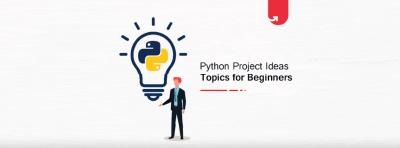

-98e41100725448ef90d7da58ec3c852a.webp&w=828&q=75)




